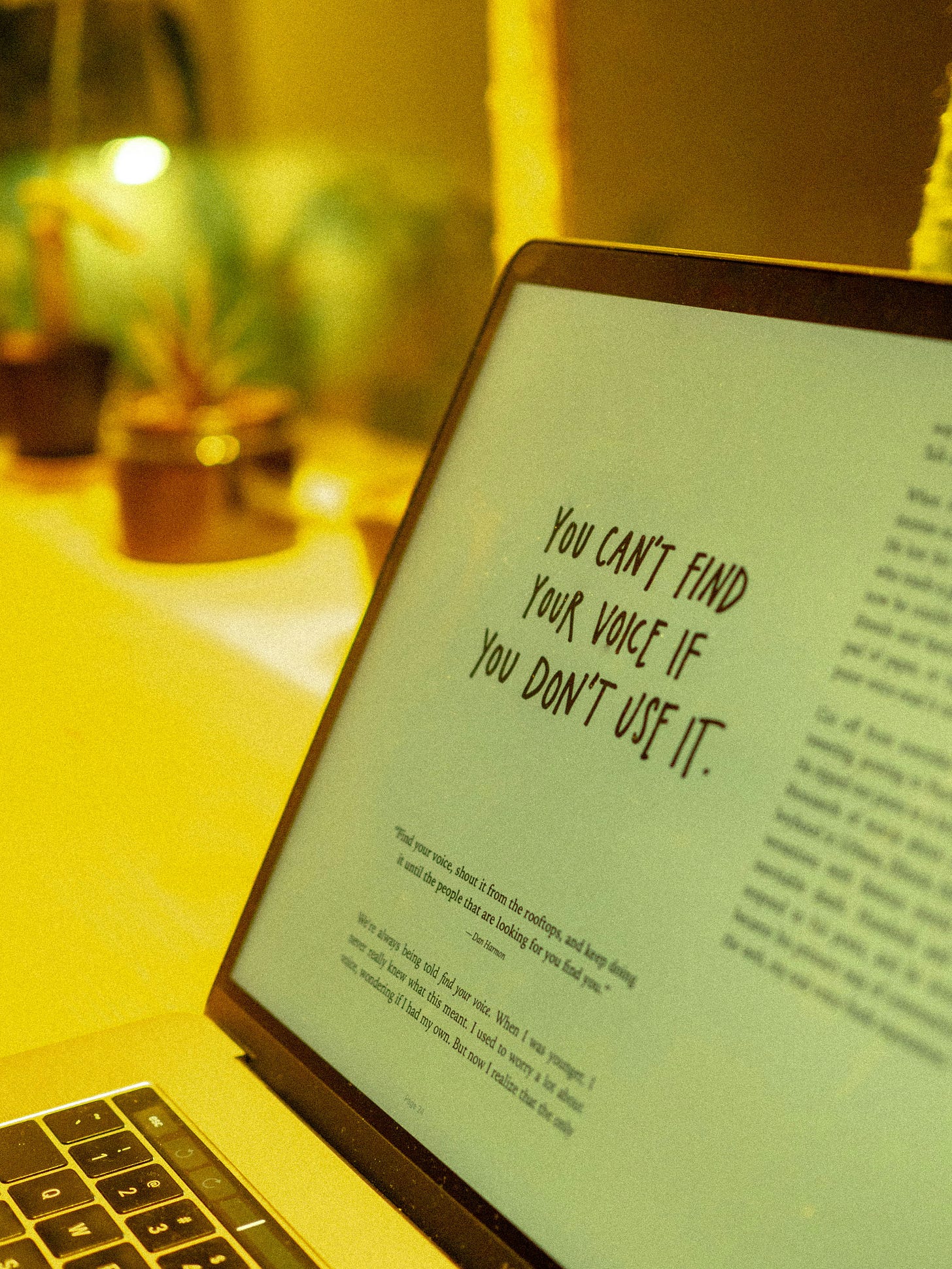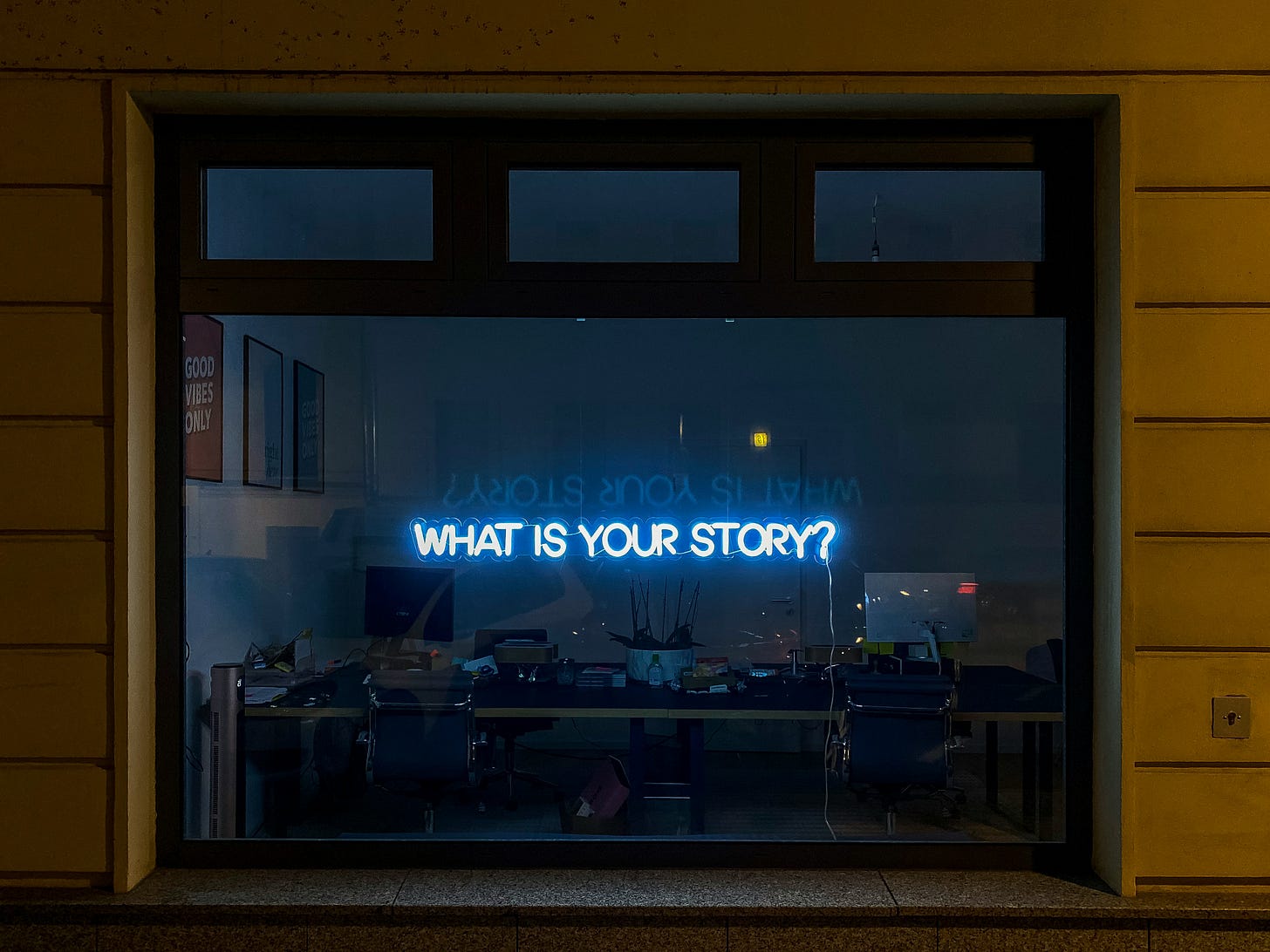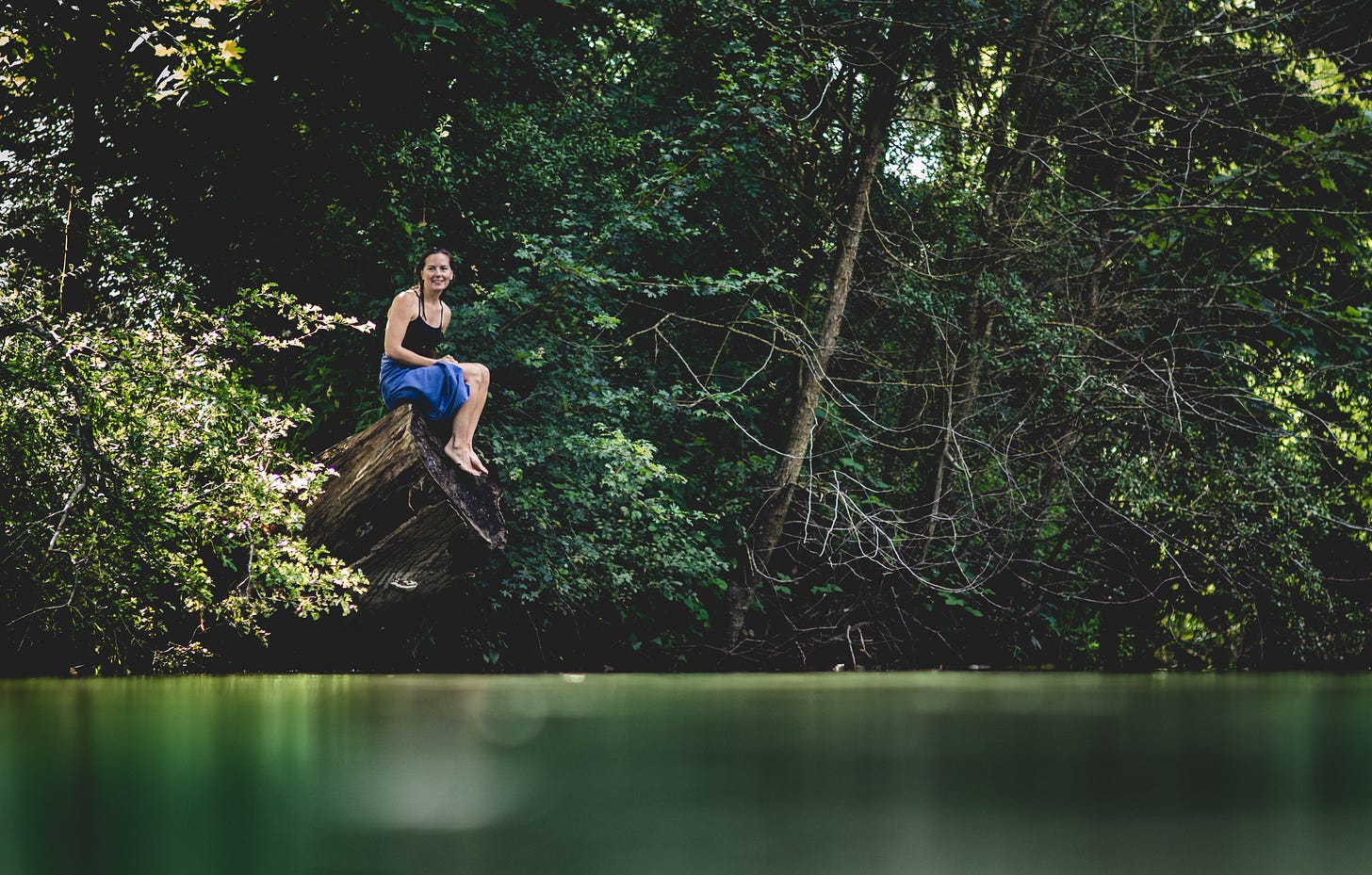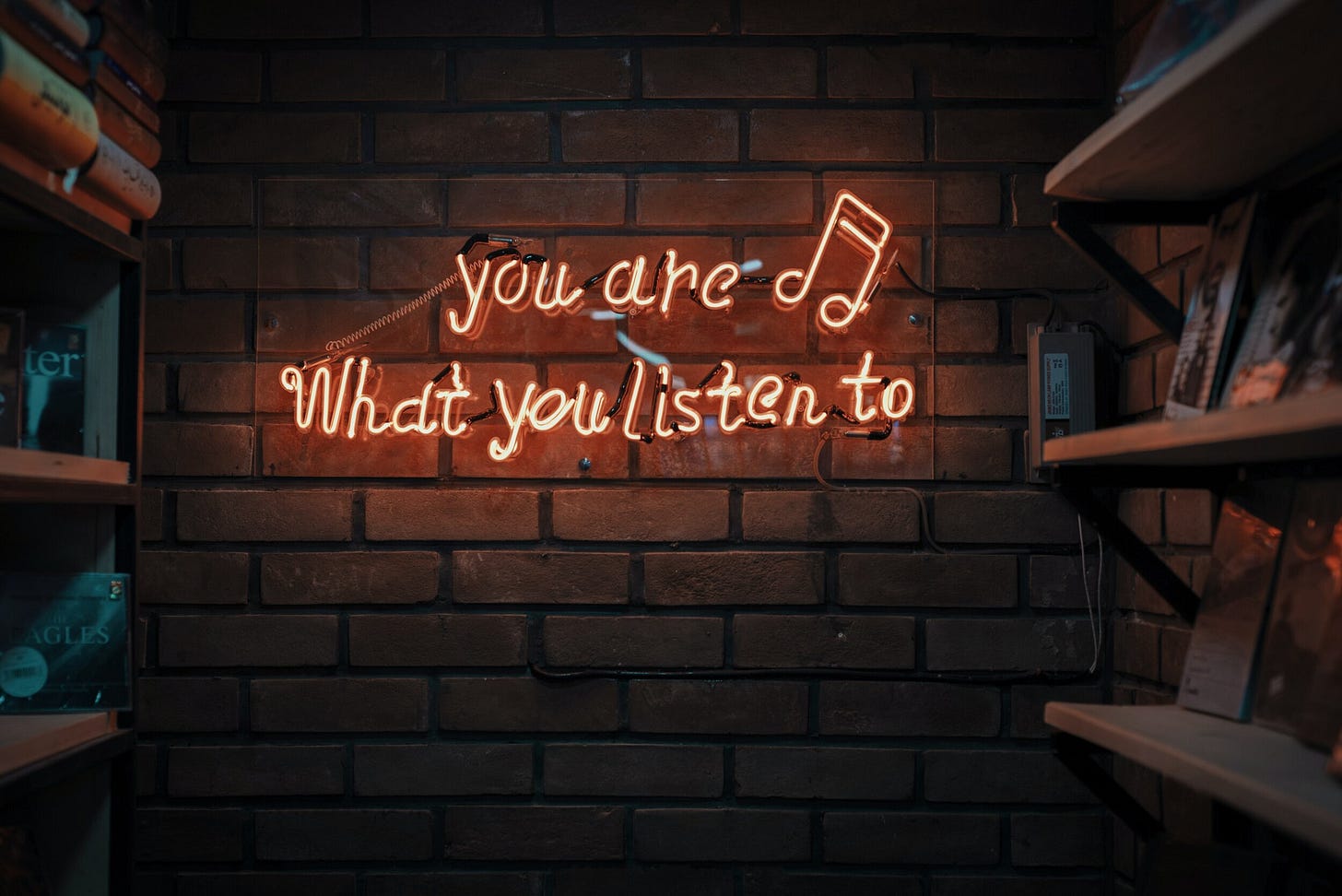On failure…
Since starting my Substack a month ago, I’ve been musing a lot on why I’m here and what I’m trying to do. I’ve been looking at my very modest subscriber numbers go up and down, been curious as to why some articles get more engagement than others and been utterly confounded by Notes. I’ve not had a single engagement through Notes, so have concluded that I must be doing Notes wrong.
It’s a strange thought this - why do we think we are doing things wrong, when we only ever set out to explore them? Why do we automatically assume that we are failing in some way? I’m currently reading Amy Edmondson’s book ‘Right Kind of Wrong: The Silence of Failing Well’ in an effort to shed some light on this way of thinking. Edmondson talks about her first sense of academic failure, when the results of her research don’t prove her initial hypothesis. Based on the results, Edmondson goes on to ask a different question, and arguably finds something much more interesting. I’ve found much solace in that prompt to ask a different question, and the idea that ‘failure’ always teaches us something. The mere existence of a supposed failure naturally kicks off a review process, and nudges us to ask:
What else is going on here?
With Substack, I need to remind myself that I’m doing this to see where it goes, to see what happens, to get comfortable with expressing some of my ideas and to find my voice. Surely, that kind of exploration is an end in itself, and one that is more than worthy of our time and attention.
Reassuringly comforted by that, I then went down another rabbit-hole of thought: what do I mean by finding my voice? Why are we driven to find our voices? I want to know…
On finding my voice

I have been trying to ‘find my voice’ for a very long time. Attempts to find my voice, have included entering podcast competitions run by the Royal Geographic Society, the BBC and She Explores, developing terrible spoken word poetry and starting several blogs on different topics, writing a few posts before abandoning them to the depths of the internet. It seems that I’m not alone.
Part of it, I’m sure, is exploring the human condition, trying to reach out and connect with others over the things that preoccupy my brain. Part of it is expression. Putting words, metaphors and images to feelings that are otherwise hard to share. Part of it is learning about others - talking to people, hearing stories, finding out why people are they are the way they are and learning more about what’s shaped them.
Yet, running counter to this desire is the fact that I struggle with the sound and strength of my own voice. I go quiet when there are louder people in the room and when I want to share my deepest truths with someone. I avoid certain events or situations that require me to be heard out loud. I love to sing, but only sing on my own because the voice in my head tells me ‘I have a terrible voice’. It’s not just my singing voice either, I also quashed my written voice for years, because the voice in my head was always asking ‘who’s going to be interested in what I have to say?’ ‘what have I got to add to the conversations?’
This dual narrative has, of course, developed and embedded itself over time. Lots of smaller events, or things that people said to me, accumulated together as ‘facts’, which I then took as proof that I my voice is not ‘good enough’. Being a litigation lawyer also wasn’t helpful, as being a lawyer opens you up to being torn down for saying anything that is factually incorrect, drafted badly or even just a little bit wrong.
Perhaps then it is the vulnerability of sharing one’s voice that is the key. The desire to connect in your truth, and the fear of being ignored because of it. Isn’t it interesting how the things that we want the most are often the things that we are most scared of. My voice has always been that thing for me.
Or is it that we simply feel unheard? Or drowned out by those who seem to believe that their voices must be heard by everyone (see BoJo, Donald Trump, modern day Laurence Fox - urrghh). Maybe this is what finding our voice is about. How to retain a connection with ourselves, our interests and our communities when they are constantly being drowned out by other voices telling us to how to think, do, be and consume?
Thinking about my voice like this has taught me to both quieten my own stuff, keep it small and find safe ways in which to share it. So many of us seem to be afraid to use our voices, whilst also knowing we do have something to bring to the conversation. Everyone does. This paradoxical thinking gives me some comfort when I consider my earlier questions on failure. As humans, breaking through fear barriers is one of the hardest things we can do, so, in this context, starting a Substack can only be a resounding success.
On podcasting…
Writing about failure and finding my voice reminds me of a time that I recorded a podcast, as interviewer, with my friend Maria. I’d said I wanted to do it, so we scheduled the date and made the recording. Having a supportive friend was key. Maria is one of those people who just gets stuff done.
Once I had the recording, it sat on my computer for five months before I did anything with it. But knowing it was there, kept me thinking about it. It kept niggling me. The voice in my head had started to change too. It had softened somewhat, became more encouraging - ‘well it’s there, I may as well do something with it.’
Working with Maria really helped. She reassured me that it would be worth it, even if it was only her mum that listened to it. I can now see that taking the pressure out of each step, was absolutely integral to getting it done. Thinking about a sexy, shiny podcast series, that has a sponsor and shit-hot production values, stopped me from doing anything for years, but taking it bit by bit somehow meant it actually happened. It meant I enjoyed the act of creation and the result was secondary. It meant we got to nurture our relationship as friends. I learnt how to use a new editing suite. In fact, I learnt a lot of things.
Once the initial edit was done, I joined the fab team at London Writer’s Salon for Writer’s Hour to help me finally, finally get it over the line. It was published on ITunes and on Oxford University’s website in all it’s slow, imperfectly edited, glory. I wish I could share it with you now, but that podcast episode has long since been cast unto the old podcasting studio in the sky. I’m ok with that because it was the creation of the episode, the process we went through that was the real success here. It was my first real go at finding my own voice and sharing it in a public sphere. This Substack is the latest reincarnation of that.

Recording that podcast, and writing on here make me proud. Maybe only 10 people will read my work, and only one reader will resonate with it. Most people won’t even know it’s here, but I am utterly stoked to be doing it for these reasons:
Time spent learning, creating and sharing your work with friends is time well spent. Asking others for their help enabled Maria to see she is a fantastic editor, and my sister to see she is awesome at logo design. I posted the podcast and submitted it to Itunes on the day of Maria’s PhD thesis submission, as a gift and reminder to her of the stuff she’s done over the last few years. This was the best incentive to get it out there. And Maria’s parents love it too - they were a big enough audience enough for me.
Technically, I’m keeping on the pulse in a way that works for me (Twitter, Facebook, Instagram never did). I love getting to know platforms like Audacity, Substack, Canva and Adobe Illustrator. My day job doesn’t allow for this kind of learning and so it’s great way to develop skills without it feeling like a laborious task. I learn what I need to know, when I need to know it.
I’m learning to like my voice. Writing regularly is allowing me to explore what feels right and what feels forced. I am starting to see what I want to write about and what helps others. I’m practising patience in the sense that I can understand that it will take time to develop a rounded understanding. On recordings, I can appreciate my little quirks of emphasising words at strange moments. My capacity for swinging in and out of weird telephone voice to ASMR voice in one sentence. Doing the simple exercises in James Sills’ Do Sing book, and realising how much more range I might have than I initially thought. Like every other part of us, our voices are unique, and need to be cared for, used regularly and understood if we want to use them to their full capacity.
I appreciate creative work even more now. Regularly writing and recording helps me understand the levels of effort, skill and talent that go into making brilliant blogs and podcasts. Those that are epic often have teams of people involved and that’s what makes them slick and great to listen to. It’s humbling.
It breaks through perfectionism. I hear my nervousness and clunkiness, but am proud that I gave it a go anyway, and proud of my awkwardness on audio. Harder to do it when you know it might sound rubbish, and dealing with that and creating anyway is definitely breaking down my old stories that I shouldn’t say anything unless it’s absolutely perfect. I also learnt that you don’t need any special equipment to get started. We used my IPhone and found the smallest room to avoid as much noisebleed as possible. As I now know, this is less important than sitting close enough to the mic so that your guest doesn’t sound like they are in a goldfish bowl, but I digress.
Finding your own creative community is essential. Writing, recording and editing can feel like lonely pursuits, but this was definitely a huge team effort. Ideas for Substack pieces come from speaking with others, a chat overheard, something someone else has written or whatever’s on my mind that week. For anyone that is having trouble creating the space to write or record or research, come join The Writer’s Hour run by the lovely Matt and Parul, founders of London Writer’s Salon. For some reason, logging into zoom and sitting in silence with a group of others who are also beavering away really works. I’ve written more in the last five weeks than I have in the last three years.
In doing the work, the reasons revealed themselves to me, and it’s only in doing the work that we get better and improve. It’s taken me way too long to learn this, and now I’m trying to practice it every day. I’m producing something. I could have kept on trying to get my work noticed by other people, but that’s not what I really wanted deep down. I wanted to create my own work, meet those people that interested me and help share our collective stories. That was always the real driver. Now I know that, it will make it easier to keep doing this. I think I’m finally starting to break through that fear of sounding awkward or being judged for not being as good as Lauren Laverne.
Now I just need to keep practising. To keep showing up for myself and the development of my voice. In true Julia Cameron style, I’ve scheduled artist dates for three months and six months time, with a view to reviewing where I’m at, asking myself how it’s gone and what I’ve learned. I look forward to sharing those reflections with you too.
Finding your Voice: Lovely links to helpful things:
Amy Edmondson, Right Kind of Wrong: The Science of Failing Well
James Sills, Do Sing: Reclaim your voice. Find your singing tribe
How do you feel about using your voice? What thoughts and fears and ideas come up? Why can we be so afraid of how we sound and what we want to say?






